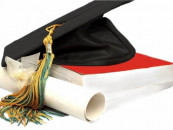Reporting fairly: Responsibility of media scrutinised
‘Media ethics compromised because of race to be first to deliver news’.

Speakers at a seminar on media ethics on Tuesday urged the media not to give into sensationalism and grant more coverage to social issues instead of focusing on crime and politics.
The seminar was organised by the University of Agriculture, Faisalabad, the Higher Education Commission (HEC) and the Press Council of Pakistan (PPC).
Council Chairman, Justice (retd) Shafqat Abbasi, who chaired the seminar, said media groups need to regulate their own organisations in ethical considerations and also ensure coverage of real issues.
He said press councils were running in 90 countries for the protection of the stake holders’ rights and to address grievances against newspapers in cases of faulty reporting and defamatory or unethical publication.
“We are determined to make the PPC a proactive institution in order to implement media ethics and are framing a course of action in this regard.”
He said the PPC intended to address the issues of the public and create an environment free of fear for reporters so that they would report accurately and fairly.”
He said there was a need to train reporters. He said more investigative reporting skills which would lead to better highlighting of social issues.
“The media should respect the dignity and privacy of every individual and not interfere in people’s personal lives.”
He said press councils were formed in India in 1965 and in Bangladesh in 1975. The Indian media, he said, did not have the constitutional guarantee of freedom the Pakistani media did.
UAF Vice Chancellor Prof Dr Iqrar Ahmad Khan stressed the need to avoid sensationalism in reporting. He appreciated the efforts of journalists who highlighted issues of national interest.
He said the UAF was launching an FM radio station to educate and inform the farming community regarding the latest agricultural practices.
HEC Director of Publications Ayesha Ikram said that no one could deny the importance of the media as it had the power to change minds. She said the media’s power must be used for social change, greater awareness and to provide people with a roadmap of progress.
Prof Mugheesuddin Sheikh said it was vital to prioritise the socio political health of the public through credible news and positive entertainment.
Dr AR Khalid said due regard must be paid to national security considerations. “Journalists and producers of entertainment programmes bear the responsibility to improve society. But in the race to be the first to deliver news and for the sake of popularity they compromise their ethical values.”
Published in The Express Tribune, April 26th, 2012.



















COMMENTS
Comments are moderated and generally will be posted if they are on-topic and not abusive.
For more information, please see our Comments FAQ